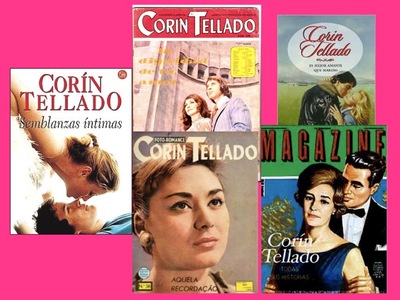The man entered the small El Condor bookstore whose shop window faces the wall that borders the University of Zurich. "I am looking for books by Corin Tellado," he whispered softly, and I jumped in front of the computer where you typed in the latest titles coming from Buenos Aires, Madrid or Mexico City. I detected a Havana accent in his voice, perhaps because he had spent little time in contact with the Swiss-German dialect which would eventually give another cadence to his words. He said he was from the La Vibora neighborhood and that he needed - desperately - some Spanish magazines similar to Hello.
Maria Mariotti, the local owner, approached him to explain that she didn't have anything, but it could be ordered from the distributor. "What titles do you want," asked the small half-Peruvian half-Japanese woman. "Anything you can get. They're for my mother who lives for them," he said, trying to justify his persistent interest in romantic novels. He said that not having remittances to send to Cuba, every month he tried to send his family some publications that they could rent to others. Their start-up business consisted of renting magazines like Vanities, or People, for five Cuban pesos, to a large community of readers who were eager to have the latest issues. The clients could keep the magazines for a week, and then they passed from hand to hand until they fell apart and had to be taken out of circulation.
A few days after that particular order, my friend left for the 2003 Barcelona Bookfair, where she offered a tribute to Maria del Socorro Tellado Lopez. She managed to approach her and tell her of the family on the other side of the Atlantic who survived each month thanks to her pen. The author of Painful Deception (1990) was impressed with the story and donated a selection of fifty of her titles, accompanied by a handwritten letter for the lady in La Vibora. That gift caused a burst of thanks in the Swiss bookstore, especially from the son of the alternative librarian. Well he knew what it meant to be able to add these new volumes to the maternal collection. Their pages would provide a deteriorating Havana house with more soap, some oil, a bit of bread, shoes for the children, along with dreams for dozens of neighbors.
Image taken from: http://telenovelas-carolina-esp.blogspot.com/

